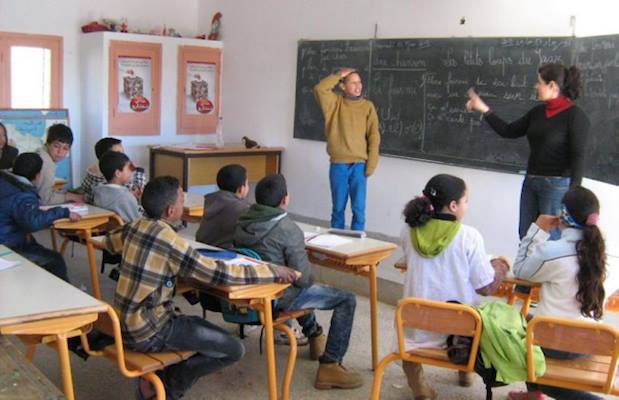Anyone would find it difficult to adjust when they go overseas, especially kids and teenagers. There is so much to learn in every passing second, including adjusting to a new school, getting around the city, finding new friends, and possibly learning a foreign language. Here are some tips that can help youngsters to adjust to the change even though it’s entirely normal for them to initially struggle. Here is How To Make Your Child Settle In New School in a different country.
#1. Make your house place a retreat
Before we even talk about settling down in new schools, let us first prioritize settling down in the new homes. Transitioning into a new place invokes lots of new changes to culture, lifestyle, and people around you. This is especially impactful with respect to your children. Making your youngster feel secure and at ease in your new house is the main objective. Your kids will be able to adjust to their new environment more quickly the sooner you unpack those boxes and arrange your possessions.
Consider giving your child’s room top priority. Get him involved in the designing process and get him fired up about getting a new space. To create a sense of security and comfort, fill the space with a blend of brand-new items and relics from the past.
#2. Make a tonne of new acquaintances
Although connecting with family and friends is wonderful, you should take care to prevent it from preventing your child from making new acquaintances. Make sure your youngster makes pals as quickly as you can. Since kids will be interacting with the same individuals every day at school, it is the simplest place to make friends and meet new people. Think about enrolling them in an international high school. As a result, they will be exposed to a variety of cultures and have a greater chance of encountering new individuals from the same country.
#3. Leverage School Interaction days
The majority of schools are open to the idea of “getting to understand you” visits and may even be willing to let you and your child attend various times during the day together to get a sense of the atmosphere. This will provide you the chance to get to know the teachers, establish ties, and start your child’s friendship network. Even a few hours is beneficial because your child won’t spend the entire first day lost. You’ll be able to plan the school run, which is an added plus! Taking the proper first step involves doing all of these simple things.
You May Also Like These
#4. Have constant conversations
Although it may seem obvious, your kid needs the chance to discuss their struggles with you. Talking things out helps the mind identify problems and consider potential remedies. You might think that this goes without saying, of course, should talk to your child—but you’ll also have a lot on your plate, making it simpler to downplay their worries. Don’t go overboard. Overanalyzing and overthinking can occasionally invent worries when there aren’t any. Every day, take a moment for conversation.
How was your child’s day, you may ask? This answers the prompt’s request for a more general question than “did you have a pleasant day?” it only demands a yes/no answer. After that, it’s frequently best to really let them make the first move and contribute whatever much or little they’d like.
#5. Empathize with their personality
Children generally tend to take different forms and personas depending on the people and circumstances they face at different stages in their ages. Every child goes through different personality traits that keep varying as they keep aging up. You must not talk to a teenager in the same way you treat your kindergarten kid. Try to empathize with their personality and problems, and show them the intent and interest in being their friend. Try to understand how they are seeing a problem and attempt to help them with their feelings and issues.
Let us see other ways to How To Make Your Child Settle In New School in a different country.
#6. Give them time and confidence
The two things which form the foundation for helping your child settle down in a new place are time and confidence. You must take it slow and help them in getting excited to wake up and go to school for all the fun experiences they have ahead. Give them the boosted confidence that they can excel bright in the new place and class, and also make them realize that they are confident enough to handle things and manage friends and problems. Giving them constant confidence is going to change their thinking patterns and they will change their perspectives of themselves.
#7. Cherish new customs and traditions
Schools in new countries often have few festivals and fun activities that give an opportunity to help your child learn more about the new customs in the place. When you make them actively participate in such festivities and days, they will get excited and curious to learn and imbibe the new culture or customs.
#8. Allow them to talk more
Try asking them generic questions about their new friends and teachers. Talk about all the subjects they are learning and make them excited about those subjects so that they get passionate about going every day. Talk to them about fun scenarios about their classmates and best friends. You can even aid them in forming new friends by sharing new food, gifting their friends some stationery, and sharing things. This will make the child confident enough about the good acquaintances that they have and the good schooling that they are exposed to.
#9. Learning new language
Often, schools in different countries may have a different first language and vocabulary. In situations like this, your child may feel like a stranger when they are unable to speak the new language that their peers are doing. So, help them in getting a good grasp of the new language and cultures so that they feel safe and active in their interactions.
#10. Do not prioritize grades
Whenever possible, refrain from placing immediate pressure on your child to perform well in class when they enroll in a new school in their new nation. Your child’s initial worries will have to do with adjusting to a different place, blending in with the other kids, and navigating a novel environment. Discuss these issues with them and assist them in making plans for the initial days.
Helping your children adjust will be one of your first and most crucial tasks at a time when you are likely to be facing a variety of challenges, regardless of their age. There are many different ways to do that, but routine will be key. You must rapidly develop a routine in addition to encouraging them to explore and become enthusiastic about their new school. These were some of the ways to How To Make Your Child Settle In New School in a different country.
It is normal for kids to experience anxiety or tension in the lead-up to a transition, especially if they are moving away from everything familiar to attend a school with a different program and perhaps a language barrier. The good news is that many kids can thrive quickly after a school move abroad with assistance from kind adults in their lives.





























Leave a Reply
View Comments